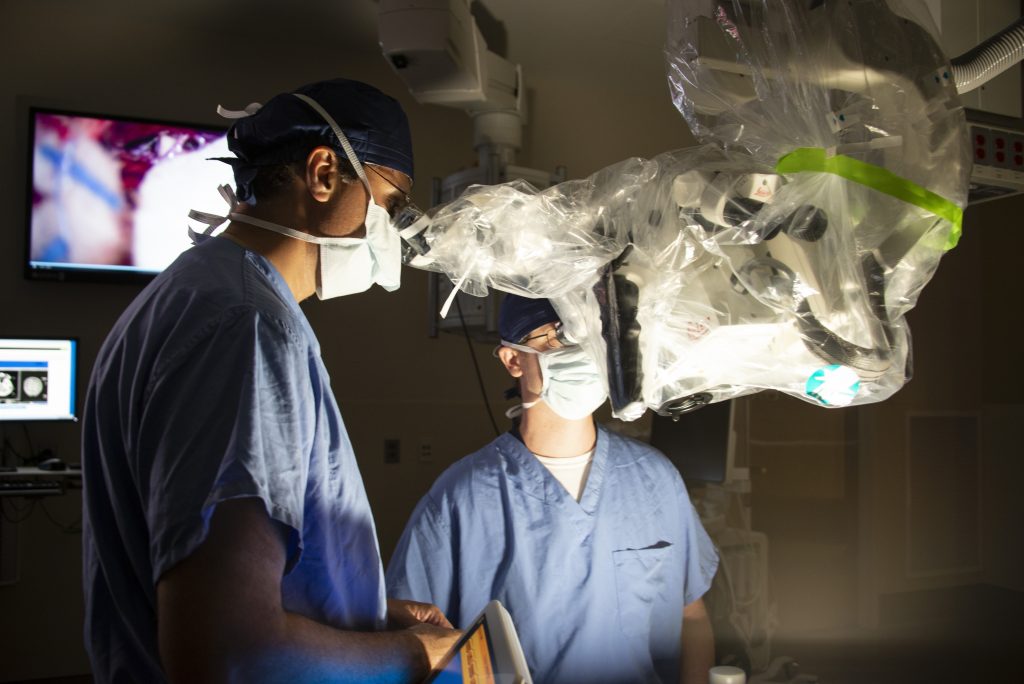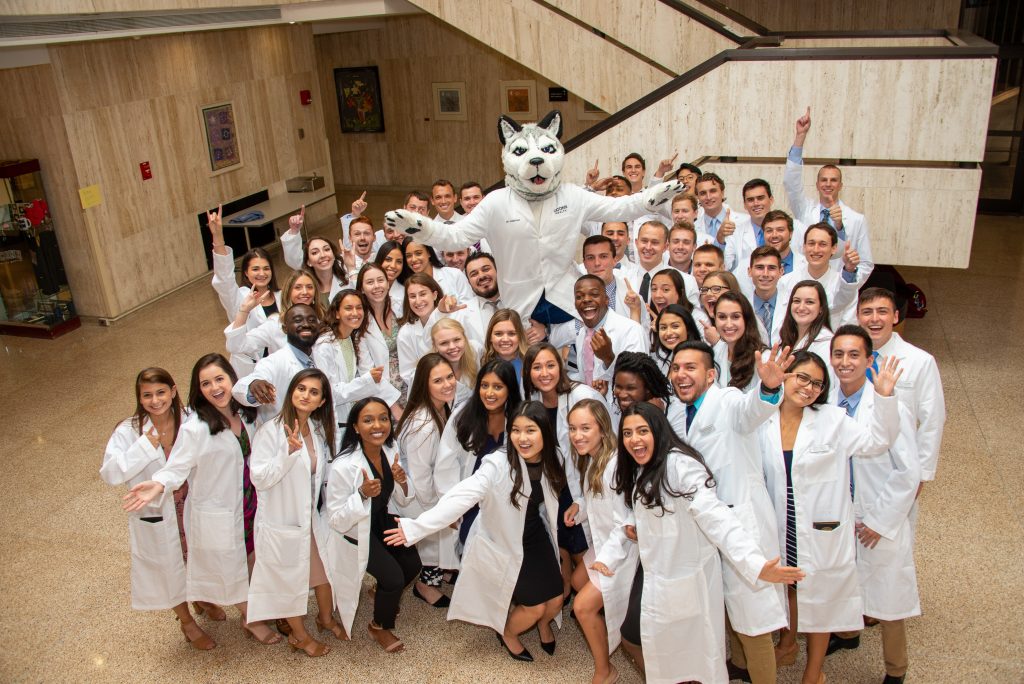Health & Well-Being
Home-based Treatments Improve Mobility in Older Adults With Fractured Hips
Patients recovering from hip fractures achieved success with regular weekly home visits by a physical therapist over a 16-week period, according to the study in JAMA.
September 10, 2019 | Combined Reports
Neurosurgery Residency Places UConn Health in Exclusive Group
UConn Health "is positioned to train the next generation of leaders in neurological surgery, who I’m convinced will one day find solutions for problems that perplex us today," says Dr. Ketan Bulsara, chief of the division of neurosurgery.
September 5, 2019 | Chris DeFrancesco '94 (CLAS)
Study: When More Pain Means More Gain
Researchers found positive psychological outcomes and increased well-being in participants who performed an extreme annual ritual as part of a national celebration.
September 3, 2019 | Elaina Hancock
Occupational Illnesses in Connecticut Decrease
The most recent data available indicate workplace-related illnesses have gone down in Connecticut, according to UConn Health experts.
September 2, 2019 | Lauren Woods
UConn Extension Produces Bumper Crop of Urban Farmers
UConn Extension's urban agriculture program brings fresh produce - and the skills to grow it - to Connecticut cities.
August 30, 2019 | Sara Putnam
Recognizing the Warning Signs of Teen Mood Disorders
UConn Health family medicine physician Erica Waddington shares the warning signs so that parents can partner on identifying teens in need.
August 27, 2019 | Frank Barton, UConn Health
164 New White Coats Issued at UConn Health
The Class of 2023, the largest incoming class in UConn Health’s history, is now donning new physician and dentist-to-be white coats.
August 26, 2019 | Lauren Woods
Op-ed: Why We Need to Let Our Children Sleep
We need to choose the path of sleep education and teach our children that when they deprive themselves of sleep, they’re depriving themselves of their full potential, writes Dr. Jennifer Papa Kanaan, UConn Health.
August 20, 2019 | Dr. Jennifer Papa Kanaan, UConn Health
New Student Recreation Center: It’s What’s Inside That Counts
UConn's brand-new Student Recreation Center is set to transform the campus experience for the entire community.
National Report Card Rates States’ Safety Policies for H.S. Athletes
Now leading the nation in high school athlete safety, New Jersey is among 16 states that adopted new policies in the past year, says the latest data from the Korey Stringer Institute.
August 12, 2019 | Combined Reports









